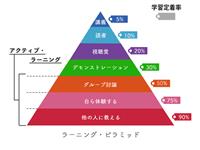Syllabus of《Tourism Management》
Course Overview
This course is designed for postgraduate students whose academic specialty is tourism management. With 34 periods, it is a 2-credit course for postgraduate degree. The course involves students both in the theory and in the research on the currently main issues of tourism management.
The course covers five parts (or five subjects) prevalent in the field of tourism management: tourism marketing, sustainable development in tourism, tourism planning and development, hospitality management, travel agency management. It intends to get students involved in the subject matter of tourism management from its world perspective as the materials used in the course are the researching articles compiled from famous international journals relating to tourism.
Course objectives
Develop an understanding of fundamental issues in the field of tourism management.
Gain an intellectual insight into what tourism management plays as a core development in the five themes of tourism study mentioned above.
Interpret and evaluate original, scientific articles in relation to your field of study.
Discuss and conduct an academic research in relation to tourism management.
Course procedures
The course is taught in English by using the academic articles compiled from the related journals as textbook.
The course is given mainly in the form of combination of lecture-giving and class discussion, as well as student’s presentation at the end of each part (or subject) of the course.
The students are encouraged to use English as much as possible in class activities to develop an ability to express idea and do research in English.
Course contents
Part 1. Tourism marketing
Case one: Cultural tourism in central and eastern Europe: the views of ‘induced image formation agents’
Cultural tourism and its rationale
Importance of cultural tourism
Markets and promotion
Culture and commercialization
Case two: Tourism marketing images of industrial cities
Geographical study
Critical sociology
Marketing images of industrial cities
Part 2. Sustainable development in Tourism
Case one: Creating and implementing a model for sustainable development in tourism Enterprises
2.1 Collaboration and integrated tourism planning
2.2 Critical factors of collaboration within tourism
2.3 Experiences from tourism enterprises
Case two: Challenges of sustainable tourism development in the developing world: the case of Turkey
2.4 Sustainable development
2.5 Sustainable tourism development
2.6 Emergence of environmental matters
Part 3. Tourism planning and development
Case one: Developing countries and tourism ecolabels
3.1 the tourism ecolabeling process
3.2 Ecolabeling schemes for the tourism industry
3.3 Practicability issues relating to tourism ecolabeling in developing countries
Case two: Operationalizing sustainability in regional tourism planning: an application of the limits of acceptable change framework
3.4 Limits of acceptable change planning process
3.5 development of survey instrument
3.6 desirable types of tourism development
Part 4. Hospitality management
Case one: Measuring the impact of human resource management practices on hospitality firms’ performance
4.1 Measures of organizational performance influenced by HRM
4.2 HRM practices
Case two: Employment, flexibility and labor market practices of domestic and MNC chain luxury hotels in Australia: where has accountability gone?
4.3 Demographic characteristic
4.4 Job status and tenure
4.5 Remuneration
4.6 Labor market development and HR innovation
Part 5. Travel agency management
Case one: Emerging e-commerce development model for Taiwanese travel agencies
5.1 E-commerce development strategy
5.2 E-commerce development model
5.3 confirmative factor analysis and correlation analysis
Case two: Service quality of travel agents: the case of travel agents in Hong Kong
5.4 The SERQUAL service
5.5 Dimensions of service quality
5.6 The five dimensions: customer expectation and perception along
Student evaluation & grading criteria
You are evaluated in two areas, which totals 100 grading points:
class discussion and presentation=30%: It is based on your active class discussion and subject-related presentation.
Research paper=70%: It is a small paper in English with around 2,000 words, for which you may choose any one of the topic of interest in relation to the subjects of the course or to the subjects of your supplementary reading material used in your presentation before.
Text book and reference book
Text book
Tourism Management compiled by Su Baoren
Reference book:
Tourism Management Towards the New Millennium, by Chris Ryan and Stephen Page; Publisher: Pergamon; Publish date: 2000; Binding: hardback
旅游学院 苏宝仁
2006,8,21




